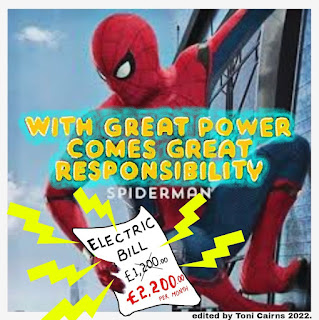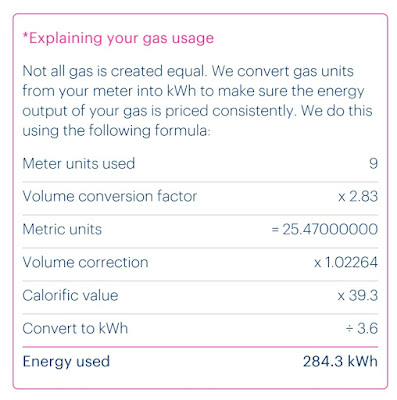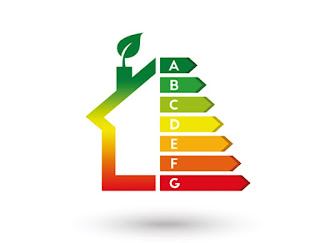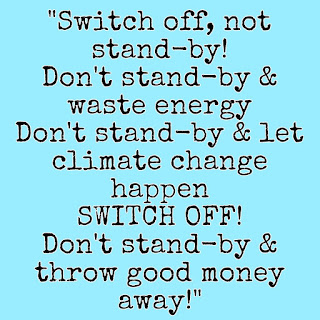Cooking Appliances Calculating Cost Of Energy Use
Various types of cooking appliances exist! Determining if to buy a new different kind of cooking appliance can be difficult
So here I have done some calculations to help people work out what is cheaper.
My best bit of advice for people trying to reduce energy bills is to look at the actual kWh energy consumption of each device, know your appliance, know how it works, and how it works at its most efficent capacity by looking after it well.
In these calculations below I have used the average Oct 2022 electric rate of 34p per kWh, but these do still vary depending upon things like type of tariff, payment method used, type of meter, your supplier and region.
So always best to think in terms of the amount of energy being used in kWh!
**Please note that an appliance might be 2kW and use 2kW of energy per hour, however if cooking with this 2kW appliance for 2 hours, it does not mean the appliace will use exactly 2kW x 2 hours = 4 hours.
This is because once it reaches the necessary cooking temperature the appliance will not need to work as hard for the entire 2 hours to maintain its temperature, therefore for example a 2kW oven used for 2 hours will use round and about 2kW x 2hours = 4kWh.
If whilst cooking you open the oven door a couple of times, then the oven will use more energy to regain the heat loss from when the oven door is opened.
Tip! When cooking in the oven, always check if food is cooked by looking through the glass oven door.
Tip! Carefully select the oven ware you use some types of oven ware retain heat far better than others.
Tip! Ignore the "best cooked from frozen advice on packaging", instead defrost frozen foods in the fridge, then stand out for half hour before cooking, this generally reduces the cooking time required. Since the first part of cooking frozen foods in the oven, is bringing the food from frozen temp up to room temp.
Tip! If cooking a frozen lasagne that says 45 minutes in oven, I defrost mine half way in the microwave first, since microwaves use less energy than most ovens, then I place it in the oven for 22.5 minutes with cheese on top, comes out lovely.
Tip! When calculating the energy kWh a device will use, it is worth remembering that the Watts given by the manufacturers is the max output of the device, many devices have various settings. For example a 1.2kW device with 3 settings might use on
- High 1.2kWh
- Medium 0.8kWh
- Low 0.4kWh
If you want to know the exact actual energy used by a particular cooking appliance, then you might be able to use a plug in energy monitoring device. However, for some high powered devices like ovens they are typically wired straight in and these can't really be used.
So instead try using the in-home display and smart meters, these will however be measuring all the energy used in your home, so if you wish to use these to gage the usage of a particular cooking appliance, then it might be best to switch everything else off entirely? But, of course this is not really a sensible thing to do if you own a fridge freezer! So, maybe leave the fridge freezer on and take into consideration its energy use before calculating that of a cooking appliance.
This is why I have carried out the following calculations the way I have, I have gone by the general guidelines, without considering the various settings of each appliance.
To calculate daily kWh
Wattage × Hours Used Per Day ÷ 1000 = Daily Kilowatt/hour (kWh) consumption
*Wattage can be found on the label of the appliance and is typically written like 35W, 100W, 500W or 35 Watts, 100Watts or 500Watts. A 1,000Watts is equal to 1kW. Simply do 1,000Watts / 1,000 = 1kWn or Watts / 1,000 = kW
If Watts is not on the label but Volts and Amperes is then for example calculate
Volts x Amperes = Watts
If 120V x 3A = 360W
To calculate the annual energy consumption
Daily kWh consumption × number of days used per year = annual energy consumption
Then to calculate the annual energy cost £
Annual energy consumption × *utility rate per kWh = £ annual cost to run appliance
*Utility rates can be found on your energy bill, Oct 2022 rates are on average about 34p per kWh of electric and 10.3p per kWh of gas, but these still vary by supplier, type of tariff, type of payment, meter and region.*
To calculate cost of using various type of cooking appliances do the calculations like this:
1.12kW fan assisted A++ rated oven is used for 1 hour uses up to
1.12kWh of electric
1.12kW per 1 hour
1.12kW x 2 hours = 2.24kWh
1.12kW x 3 hours = 3.36kWh
1.12kW x 4 hours = 4.48kWh
1.12kWh x elec unit price per kWh = cost
If you pay 34p per kWh
1.12kWh x 34p = 38p per hour
38p x 2 hours = 76p
38p x 3 hours = £1.14
38p x 4 hours = £1.52
1.2kW Airfryer is used for 1 hour uses up to
1.2kW air fryer uses 1.2kWh per hour
1.2kW x 2 hours = 2.4kW
1.2kW x 3 hours = 3.6kW
1.2kW x 4 hours = 4.8kW
1.2kWh x elec unit price per kWh = cost
If you pay 34p per kWh
Then 1.2kWh x 34p = 40.8p
That is 40.8p per hour
40.8p x 2 hours = 81.6p
40.8p x 3 hours = £1.22
Half hour would cost
40.8p / 2 = 20.4p
Quarter of an hour would cost
40.8p / 4 = 10.2p
500W Slow Cooker used for 1 hour uses
0.5kW per hour
0.5kW x 2 hours = 1kWh
0.5kW x 3 hours = 1.5kWh
0.5kW x 4 hours = 2kWh
0.5kW x 5 hours = 2.5kWh
0.5kWh x elec unit price per kWh = cost
If you pay 34p per kWh
Then 34p x 0.5kWh = 17p
That is 17p per hour
17p x 2 hours = 34p
17p x 4 hours = 68p
17p x 8 hours = £1.36.
250W Slow Cooker used for 1 hour uses up to
0.25kW per hour
0.25kW x 2 hours = 0.5kW
0.25kW x 3 hours = 0.75kW
0.25kW x 4 hours = 1kW
0.25kW x 6 hours = 1.5kW
0.25kW x 8 hours = 2kW
0.25kW x 10 hours = 2.5kW
0.25kWh x elec unit price per kWh = cost
If you pay 34p per kWh
Then 0.25kW x 34p = 8.5p
That is 8.5p per hour
8.5p x 2 hours = 17p
8.5p x 4 hours = 34p
8.5p x 6 hours = 51p
8.5p x 8 hours = 68p
8.5p x 10 hours = 85p.
2kWh Oven used for 1 hour uses up to
2kW of elec per hour or 2kWh
2kW per 1 hour
2kW x 2 hours = 4kWh
2kW x 4 hours = 8kWh
2kW x 3 hours = 6kWh
2kWh x elec unit price per kWh = cost
If you pay 34p per kWh
Then 2kWh x 34p = 68p
That is 68p per hour
68p x 2 hours = £1.36
68p x 3 hours = £2.04
68p x 4 hours = £2.72
So a meal that takes an hour in a
1.12kWh oven might cost up to 38p
1.2kWh Airfryer might cost up to 40.8p
2kWh oven might cost up to 68p
Some appliances cook faster, so you might want to consider this when comparing.
You might want to compare half hour in Airfryers to an oven?
Tips for reducing energy consumption in the kitchen
- Service wash laundry machines regularly.
- Clean behind fridge freezers and other appliances.
- Keep door seals clean so they work well.
- Keep doors closed when using appliances, like use the oven door window to look through to see when things are cooked, instead of opening the oven door. By opening the oven door you are letting the heat out.
- Organise fridge freezers well this reduces the time you need to have the door open when looking for items.
- Ensure enough space behind fridge freezers and other appliances, most big kitchen appliances build up a lot of heat and require adequate amounts of ventilation.
- Do not place fridge freezers need heat points like other large appliances, radiators or direct sunlight. They will consume more energy trying to keep cool.
- Check fridge freezers settings are the most economical whilst doing the required job. For example I have my fridge at 5°C and freezer at -18°C. Typically fridges are set between 1°C and 5°C, 1°C uses more energy than 5°C. Typically freezers are set between -18°C and -21°C, -21°C uses more energy than -18°C.
- Try to fill empty spaces in freezers, I use plastic tubs with lids on.
- Keep fridges fairly full but don't over fill.
- Do not over fill washing machines.
- Try to use lower temperature and shorter wash cycles in washing machines.
- Try to reduce tumble dryer use by 1 to 2 loads per week?
- Try to reduce dish washer use by 1 to 2 loads per week?




Comments
Post a Comment